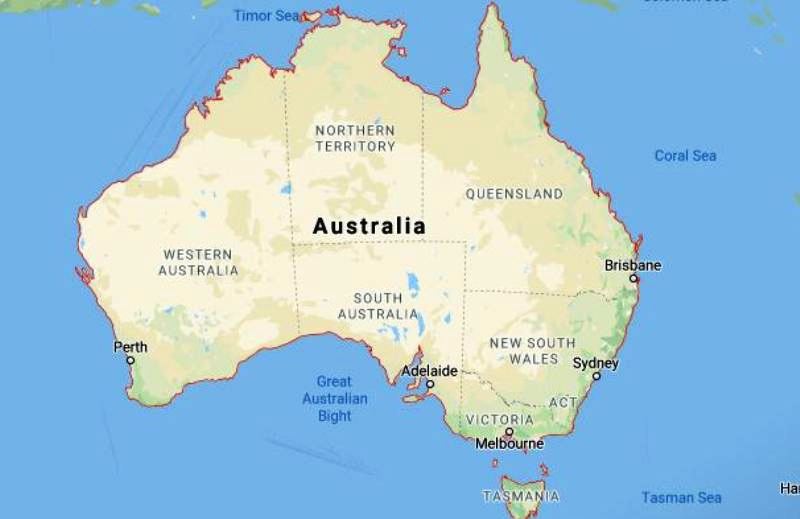By Ambassador T. Brikins
2027…Is media alignment on the way?
In June 2025, the Federal Court of Australia delivered a verdict that sent shockwaves across the media landscape. Antoinette Lattouf, a journalist and television presenter of Lebanese descent, had been abruptly removed midweek from her role at ABC, Australia’s national broadcaster.
Her offense? She reposted a Human Rights Watch report on the Gaza conflict, which the ABC interpreted as politically charged. But the court ruled otherwise. It declared the dismissal unlawful and awarded her damages, stressing that political opinion is a protected workplace right—even for journalists.
The ruling forced the ABC to publicly apologize. They admitted that in their haste to distance themselves from a politically sensitive post, they had undermined their core values: editorial independence, diversity, and inclusion. This decision not only reaffirmed the power of judicial oversight but spotlighted the role of media institutions in preserving democracy—even when uncomfortable truths surface.
Now, draw a line from Canberra to Abuja, and the contrast grows starker.
In Nigeria, where the All Progressives Congress (APC) has held federal power since 2015, political alignment often dictates the tone, reach, and freedom of media narratives. Unlike Australia, journalists in Nigeria rarely get justice when targeted for dissenting views. Several cases stand out.
In 2021, Premium Times journalist Samuel Ogundipe was detained for refusing to reveal the source of a security-related report. Though he was later released following public outcry, his arrest sent a chilling message to investigative reporters. In 2020, during the #EndSARS protests, authorities targeted media houses like Arise TV, Channels TV, and AIT. The National Broadcasting Commission (NBC) fined them ₦3 million each for allegedly “inciting the public.” These outlets had aired footage of the Lekki Toll Gate shootings—a pivotal moment the government sought to downplay.
The NBC itself has become a controversial instrument in the hands of the ruling party. During the 2023 elections, the commission suspended an AIT program for “partisan coverage” simply because it aired opposition party voices questioning INEC’s conduct. No court rebuked the NBC. No damages were awarded. And no institutional apology followed.
This is where mass communication principles come into sharp relief. In Australia, gatekeeping failed—temporarily—but the legal system stepped in to reset the balance. In Nigeria, gatekeeping favors the powerful and punishes those who challenge dominant narratives. The agenda-setting role of the media, instead of empowering citizen participation, often bends toward protecting political elites. When dissenting journalists are silenced, or when the press avoids uncomfortable stories for fear of sanctions, the very fabric of accountable democracy begins to unravel.
Australia’s case affirms that public institutions can correct themselves. Nigeria’s reality shows that media capture and politicization often go unchecked. Public broadcasters like the Nigerian Television Authority (NTA) serve as mouthpieces for the federal government. Rarely do they challenge federal power or highlight state-sponsored abuses. And when private media do, they risk fines, license suspension, or physical intimidation.
Compounding the problem is digital surveillance and legislative overreach. The infamous Protection from Internet Falsehood and Manipulation Bill, colloquially called the “Social Media Bill,” threatened to criminalize online dissent before it was shelved under public pressure. Yet, the attempt revealed a mindset hostile to digital free expression.
Another case worth noting is that of Agba Jalingo, a journalist from Cross River State. In 2019, he was arrested and charged with treason for writing articles critical of Governor Ben Ayade. He spent months in detention, enduring inhumane conditions, until sustained advocacy by civil society groups forced his release. No apology. No restitution.
In Australia, Antoinette Lattouf’s dismissal sparked public debate, judicial correction, and institutional reflection. In Nigeria, journalists like Jalingo are lucky to escape with their freedom—never mind compensation.
Broader Implications
This disparity has grave consequences. When journalists cannot speak truth to power without retaliation, democracy deteriorates into managed populism—where elections still occur, but accountability evaporates. Where truth becomes a tool of propaganda. Where public discourse is sanitized to suit the ruling party’s agenda. This is not just bad for journalists; it’s dangerous for society.
Accountable democracy requires fearless media. It also requires institutions that protect—not punish—those who uphold the truth. Australia shows that it’s possible. Nigeria must decide whether it will continue down the path of media repression or course-correct toward a freer, more just society.
Spiritual and Civic Charge
As Scripture reminds us, “Open your mouth for the mute, for the rights of all who are destitute.” (Proverbs 31:8). And again, “You shall not pervert justice; you shall not show partiality…you shall not accept a bribe.” (Deuteronomy 16:19). Justice, not political expediency, should be the guiding principle of governance.
📜 Qur’an – Surah An-Nisa (4:135)
“O you who have believed, be persistently standing firm in justice, witnesses for Allah, even if it be against yourselves or parents and relatives…”
(Qur’an 4:135)
Both scriptures uphold the moral duty to speak truth and stand for justice—even when it is inconvenient or risky. This shared value between the Bible and the Qur’an highlights the universal importance of protecting speech, defending the voiceless, and holding power accountable.
Final Reflection
Antoinette Lattouf’s victory is more than a personal win. It is an alert for the days ahead. Nigeria must learn that when the press is stifled, the people lose their voice—and democracy loses its soul.
Ambassador T. Brikins is a Mass Communications and Competitive Intelligence Consultant and Advocate for Accountable Democracy



